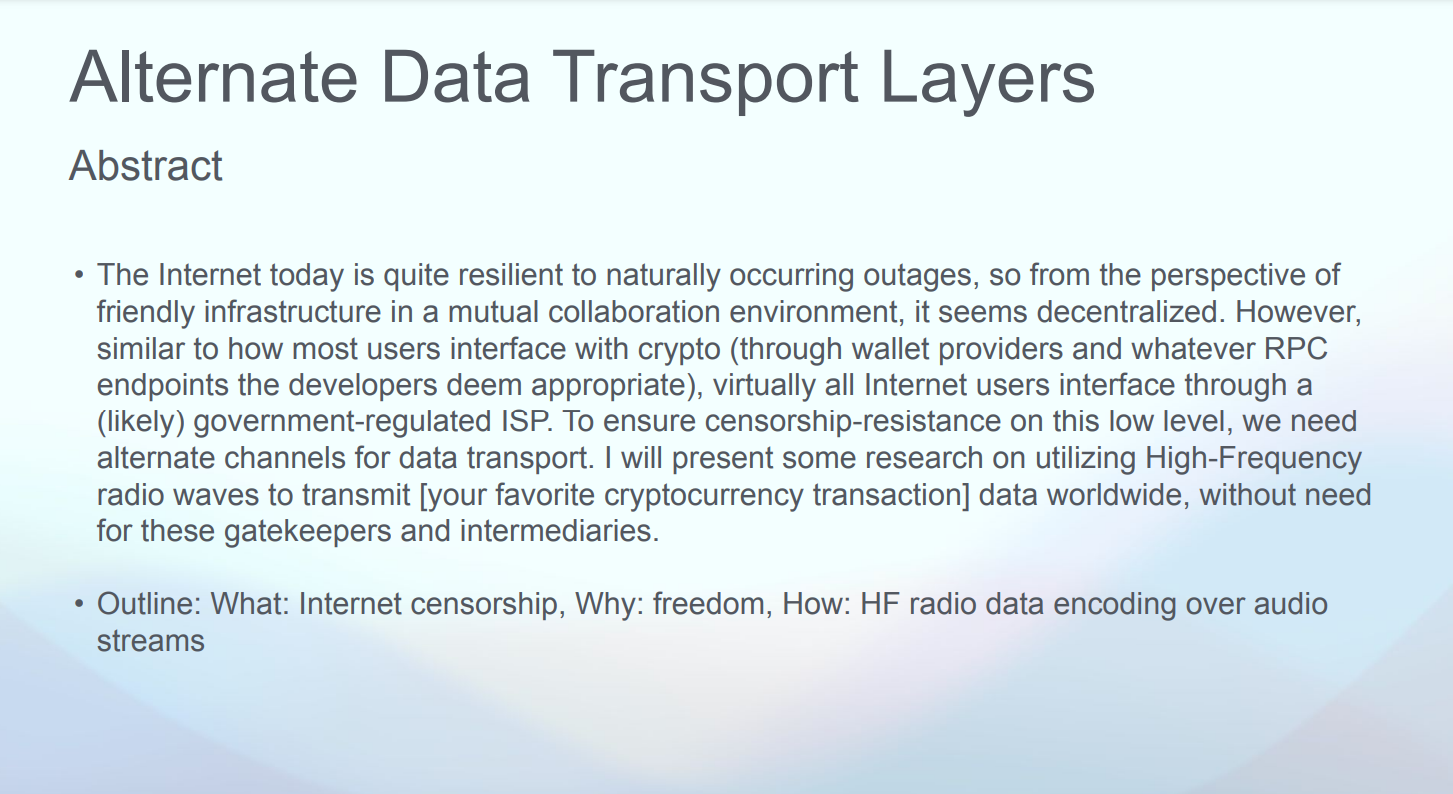Alternate Data Transport Layers - Censorship.wtf
Source : https://www.youtube.com/watch?v=t2cRSO5jLTg

What is Internet is not decentralized enough ? (0:50)


It's important to consider the full stack, from physical infrastructure up to the application layer, when building censorship-resistant systems.
The Internet is the data transport layer for Ethereum network stack. In other words, this is a layer below Ethereum
The internet is decentralized from a physical infrastructure perspective but prone to censorship by ISPs (Internet Service Providers). The censorship risk on the Internet varies by location and government regulations.
Internet access can be an economic barrier, with limited/filtered packages available in some developing countries.
Thinking about how to provide affordable, uncensored Internet access globally, especially in places with expensive/restrictive ISPs, is an important challenge.
As a response, radio waves can be used for long-range low-bandwidth communication as an alternate data transport layer.
Why do we do this ? (02:50)

Radio provides a way to send transactions without internet access or censorship, and it aligns with the goal of providing equal access to communications and enabling collective evolution of humanity.
How to do this ? (03:20)


Radio waves can be used for long-range, low-bandwidth communication to send transactions without internet access.
Only one non-internet connected actor is needed to broadcast the transaction via radio, and another actor with internet receives it and relays the transaction to the network.
Open source software like Fldigi can encode data into audio for radio transmission.


Messages can be transmitted long distances like across the entire US peer-to-peer.
The required hardware is cheap : a $50 radio and basic antenna can receive signals.


The audio transmission is decoded back into transaction data, and the transaction is submitted to the mempool like any other.
This effectively builds a proxy for people without internet access to submit transactions. It provides censorship resistance and transaction submission without centralized intermediaries.
Issues (07:20)

The 2 biggest issues :
- Need to coordinate on standards for frequencies, encoding algorithms to use for radio transmission of transactions
- In a lot of jurisdictions, you're limited to a very low wattage of how much you can actually transmit, and this can limit the range.
But protocols could help automate decoding & processing of received data, and low power transmitters can still achieve long range transmission of thousands of kilometers.
The future of data transport is diverse (8:30)

- Implementation of acknowledgment receipts allows bidirectional communication to confirm transmission
- Can then build multi-hop IP networks instead of just point-to-point
- Guides and hardware info could be distributed to help people set up radio transaction transmission
- Other alternatives like launching decentralized satellite constellations could provide censorship-resistant connectivity
Overall, focusing on lower network layers below Ethereum is key for censorship resistance.